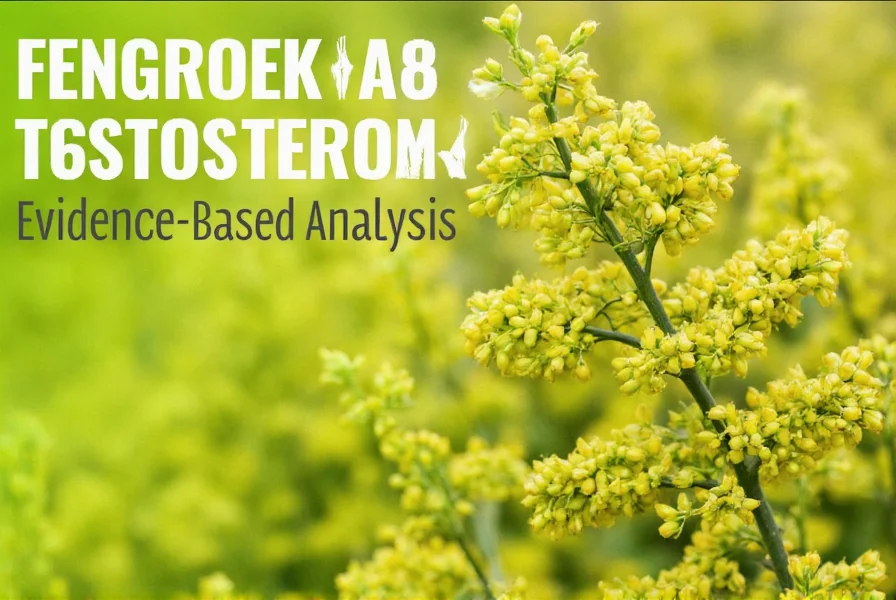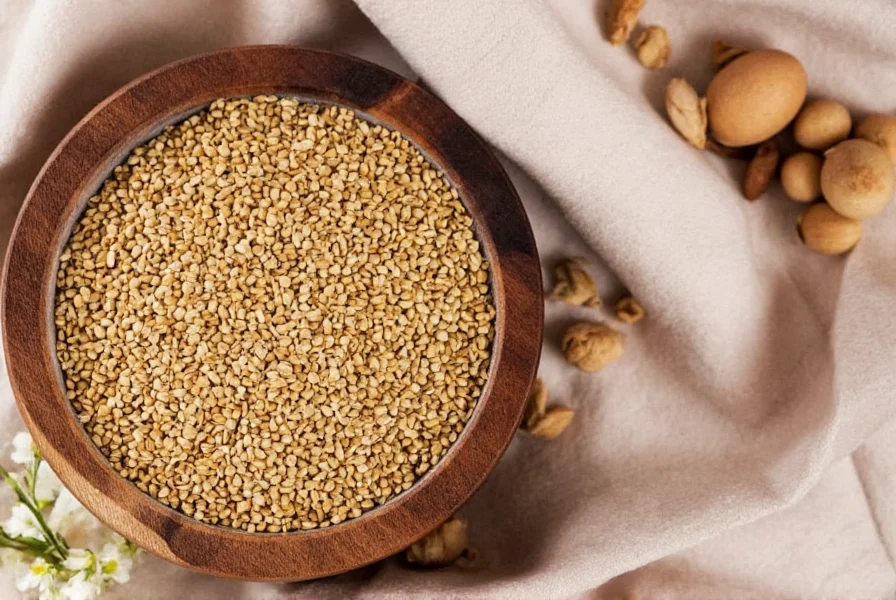Current scientific evidence indicates that Trigonella foenum-graecum (fenugreek) may support healthy testosterone levels in certain populations, particularly men with low baseline levels, though effects are generally modest and research remains inconclusive. Multiple clinical studies show potential benefits, but methodological limitations prevent definitive conclusions about its efficacy as a testosterone booster.
Fenugreek (Trigonella foenum-graecum), a traditional medicinal herb with documented use in Ayurvedic and Chinese medicine, has gained attention in modern research for its potential effects on hormonal balance. As scientific interest in natural approaches to supporting male reproductive health grows, understanding the relationship between fenugreek supplementation and testosterone levels becomes increasingly relevant for health-conscious individuals seeking evidence-based information.
Understanding Fenugreek's Botanical Profile
Native to the Mediterranean region and South Asia, fenugreek (Trigonella foenum-graecum) has been used for centuries both as a culinary spice and medicinal herb. The seeds contain bioactive compounds including furostanol saponins, trigonelline, and 4-hydroxyisoleucine, which researchers believe may influence endocrine function. Modern extraction techniques have enabled standardized preparations that maintain consistent concentrations of these potentially active constituents, facilitating more reliable clinical investigation.
Scientific Evidence on Fenugreek and Testosterone
Multiple clinical trials have examined fenugreek's impact on testosterone levels with varying results. A 2017 double-blind, placebo-controlled study published in Phytotherapy Research followed 50 men aged 25-54 with low testosterone symptoms. Participants receiving 500mg daily of standardized fenugreek extract showed statistically significant increases in total testosterone compared to placebo after 12 weeks.
| Study | Participants | Dosage | Duration | Testosterone Change |
|---|---|---|---|---|
| Wankhede 2016 | 50 men | 500mg/day | 12 weeks | +25% total testosterone |
| Brooks 2018 | 60 resistance-trained men | 600mg/day | 8 weeks | No significant change |
| Rao 2016 | 65 men with age-related decline | 675mg/day | 6 months | +14.2% free testosterone |
The inconsistency across studies appears related to several factors including participant selection criteria, dosage variations, extract standardization methods, and study duration. Research focusing on men with clinically low testosterone tends to show more consistent positive results than studies with healthy athletic populations.
Mechanisms of Action
Scientists have proposed several potential mechanisms explaining how Trigonella foenum-graecum might influence testosterone levels:
- Inhibition of testosterone metabolism: Certain fenugreek compounds may inhibit enzymes that convert testosterone to dihydrotestosterone (DHT) or estrogen
- LH stimulation: Some evidence suggests fenugreek may enhance luteinizing hormone production, which signals the testes to produce testosterone
- SHBG modulation: Preliminary research indicates fenugreek might influence sex hormone-binding globulin levels, potentially increasing free testosterone availability
- Antioxidant effects: By reducing oxidative stress in testicular tissue, fenugreek may support healthier testosterone production
However, these mechanisms remain theoretical and require further validation through human studies. Most mechanistic evidence comes from in vitro or animal research, which doesn't always translate directly to human physiology.

Safety Profile and Considerations
Fenugreek demonstrates a favorable safety profile in clinical studies at typical dosages (300-1000mg daily of standardized extract). The most commonly reported side effects include mild gastrointestinal discomfort and a characteristic maple syrup-like body odor due to sotolone content. Individuals with peanut or chickpea allergies should exercise caution due to potential cross-reactivity.
Those managing diabetes should monitor blood glucose levels carefully, as fenugreek demonstrates hypoglycemic effects. The herb may also interact with anticoagulant medications due to its vitamin K content. Pregnant women should avoid therapeutic doses as fenugreek may stimulate uterine contractions.
Evidence-Based Recommendations
Based on current research, individuals interested in exploring fenugreek for hormonal support should consider these evidence-based recommendations:
- Consult with a healthcare provider before beginning supplementation, especially if managing hormonal conditions or taking medications
- Choose standardized extracts with documented saponin content (typically 50% furostanol saponins)
- Allow 8-12 weeks of consistent use before evaluating potential effects
- Combine with lifestyle approaches including strength training, adequate sleep, and stress management
- Manage expectations—effects when present are typically modest rather than dramatic
It's important to recognize that no single supplement can compensate for poor lifestyle factors that significantly impact testosterone levels. Research consistently shows that sleep quality, exercise patterns, nutritional status, and stress management exert stronger influences on hormonal balance than any single botanical intervention.
Comparative Analysis with Other Natural Approaches
When evaluating fenugreek's potential role in supporting testosterone levels, it's helpful to consider how it compares to other commonly researched natural approaches:
- Zinc: Well-established role in testosterone production with stronger evidence for deficiency correction
- Vitamin D: Significant correlation between serum levels and testosterone, particularly in deficient individuals
- Tribulus terrestris: Mixed evidence with most rigorous studies showing minimal testosterone effects
- Ashwagandha: Growing evidence for stress reduction benefits which may indirectly support healthy testosterone
Fenugreek appears to have a more consistent research profile than some popular alternatives, though the evidence base remains less robust than for foundational nutrients like zinc and vitamin D in addressing specific deficiencies.
Future Research Directions
While current evidence on Trigonella foenum-graecum and testosterone shows promise, several research gaps remain. Future studies should address:
- Larger, longer-duration clinical trials with standardized extracts
- Investigation of optimal dosing protocols for different populations
- Mechanistic studies to confirm proposed biological pathways
- Research on potential synergistic effects with other evidence-based approaches
- Studies focusing on specific populations such as aging men or those with clinically low testosterone
Until more definitive research emerges, fenugreek should be viewed as a potential complementary approach rather than a primary intervention for testosterone support. The most effective strategies continue to emphasize foundational lifestyle factors supported by stronger evidence.











 浙公网安备
33010002000092号
浙公网安备
33010002000092号 浙B2-20120091-4
浙B2-20120091-4